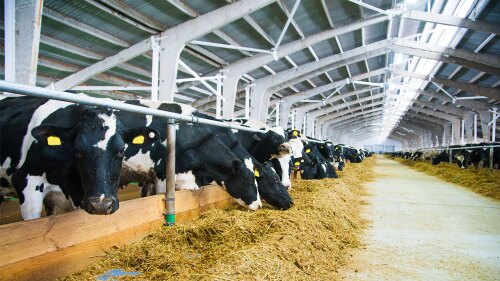Safety Measures in Farm Operations
Farming is no easy task. From sun up to sun down (and even overnight!) farmers are dedicated to making sure their farms run smoothly and efficiently. Because of that, agriculture ranks among the most hazardous industries. Long hours combined with heavy machinery usage among other things, put farmers at an extremely high risk of fatal and non-fatal injuries.
What is the importance of farm safety?
Farms are filled with many different risks that can cause fatal injuries. On average, about 170,000 people are injured on farms every year. It’s important for all farm workers and family members who work or live on the farm to follow the recommended farm safety guidelines.
What are five common hazards on most farms?
- Overturning heavy machinery
- Exposure to toxic chemicals
- Heat stress
- Suffocation
- Falling from great heights
In 2017, 416 farmers and farm workers died from a work-related injury, and every day about 100 agricultural workers suffer a lost work time injury.
Fortunately, farm accidents can be prevented by having a few safety measures put in place:
- Install proper lighting and “slow moving” signage on vehicles and machinery, and wear light-colored clothing or a reflective vest any time you operate machinery on roadways.
- Take necessary steps to prevent suffocation or entrapment inside grain bins. Never enter a grain bin without first turning off all mechanical, hydraulic, and pneumatic equipment.
- Prevent combine fires by removing oil, grease, and residue buildup, and clean off chaff, dust, and crop residue every four to six hours while operating.
- Carry a fire extinguisher in the cab of machinery and another that can be reached from the ground.
- Don’t allow extra riders on farm equipment. Prohibit children from playing on idle equipment and know the location of children prior to operating machinery.
- Disengage power takeoff when not in use.
- Equip farm tractors and self-propelled machinery with rollover protection. Keep manufacturer’s guards and shields in place.
- Install barriers for manure pits, wells, cisterns, and ponds.
- Let engines cool for 15 minutes before refuling.
- Take extra precaution when handling chemicals such as anhydrous ammonia, carbon dioxide, methane gas, and hydrogen sulfide. Store chemicals, pesticides, and herbicides in secure areas. Follow manufacturer’s handling directions carefully.
- Do not wear loose clothing while operating machinery or entering confined spaces to prevent entaglement.
- Be cautious on roadways and keep equipment at least 20 feet from any overhead power lines.
Be sure to implement these 12 farm safety tips in your day-to-day operations to ensure you don’t become part of a statistic!






